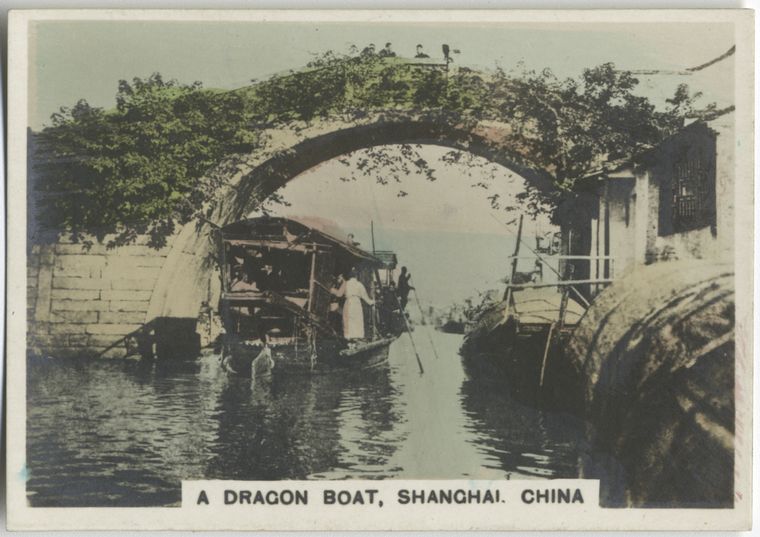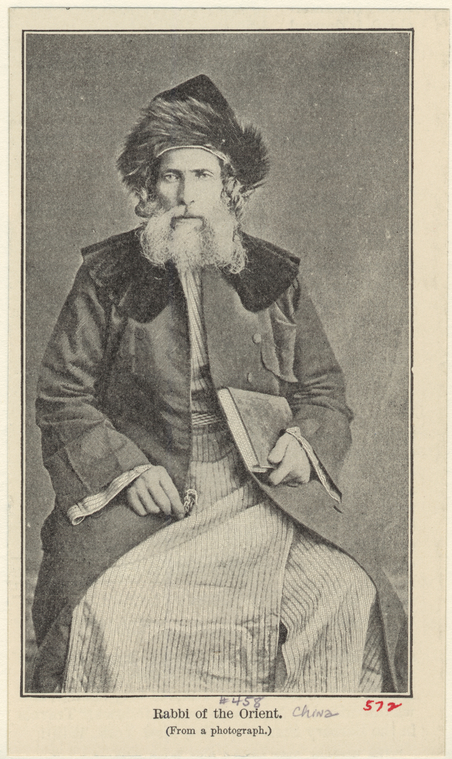Archives, Three Faiths, The Ticketless Traveler
The Jews of Shanghai: Uncovering the Archives and Stories

"Life was difficult in Shanghai, but infinitely better than anything they had left behind. From lower-middle-class comfort, the Tobias family was reduced to poverty but not to starvation. There was always food, always something to eat, always shelter even when the Jewish community was ghettoized shortly after Pearl Harbor. Thus even under terribly difficult conditions Moses Tobias was able to take care of his family but under the Nazis the conditions of the Jews were far worse than merely 'terribly difficult.'
"Shanghai was a multiethnic city and the Japanese controlled the city's Chinese populations. There were elite Sephardic Jews from Iraq, Syria and other parts of the Middle East who had long lived and prospered in Shanghai, as well as the new immigrants from Germany. They were later to be joined by Jews from Lithuania and Poland. The British ruled the International Settlement. The more comfortable Jews had built a community in Shanghai replete with synagogues and schools ..." From p. xvi —Strange Haven: A Jewish Childhood in Wartime Shanghai by Sigmund Tobias

The anecdote above is one of many harrowing yet hopeful tales of the Jewish people living in Shanghai during World War II. Many of their stories remain to be told. As the Nazi Empire sent shock waves to the Jewish community in Germany, many abandoned their belongings and fled to China for safety since Shanghai was an open port: no visas or passports were required.
From the 1930s, approximately 20,000 refugees escaped the destruction wrought by the Nazis while leaving behind their memories of life, traumas and experiences of war. However, as history reveals itself, Shanghai was suddenly under attack and occupation by the Japanese. The Japanese forces relocated Jews to live in their own ghettos known as the Restricted Sector for Stateless Refugees (or Shanghai Ghetto) where many were cramped into tiny living spaces, and starved but not deprived of food. In this setting, the Japanese permitted a bit more flexibility for the Jewish communities compared to the Nazis. However, both were still ruthless empires of the 20th century.
The cultural and social histories of Jews living in Shanghai are remarkable: schools were established, theater plays were produced and newspapers were published. The Jewish community also built their own synagogues and many are still around in Shanghai today.
Once the war ended in 1945, the ghettos were officially liberated; a few stayed in Shanghai while a majority migrated to the newly established state called Israel in 1948.
 Sample Catalog Record of a Recording in the Oral History CollectionLuckily for researchers, at NYPL we have several interesting oral histories documenting the lives of Jewish refugees living in Shanghai. Susan Stamberg, an American radio journalist who is currently a Special Correspondent for National Public Radio (NPR) interviewed several Jewish people who lived in Shanghai during that time.
Sample Catalog Record of a Recording in the Oral History CollectionLuckily for researchers, at NYPL we have several interesting oral histories documenting the lives of Jewish refugees living in Shanghai. Susan Stamberg, an American radio journalist who is currently a Special Correspondent for National Public Radio (NPR) interviewed several Jewish people who lived in Shanghai during that time.
This special collection is part of the The New York Public Library: American Jewish Committee Oral History Collection which contains over "156,000 pages of transcripts, 6,000 hours of taped interviews, 2,250 informants: this incomparable repository of unique and unpublished primary source material is for the study of what is often called 'the American Jewish experience in the 20th century,' is the mother of all American Jewish oral histories and one of American Jewish culture's most substantial monuments." See here for more information.
 Ohel Moishe Synagogue in Shanghai by HBarrison on FlickrListening to some of the interviews was deeply fascinating and transformed my sense of reality into the past, envisioning how they lived in Shanghai: their thoughts about Germany, China and Japan; their social lives; what they were eating, thinking and feeling in Shanghai when it was a developing and poor city. Today Shanghai is a major cosmopolitan city and now part of an international economic hub.
Ohel Moishe Synagogue in Shanghai by HBarrison on FlickrListening to some of the interviews was deeply fascinating and transformed my sense of reality into the past, envisioning how they lived in Shanghai: their thoughts about Germany, China and Japan; their social lives; what they were eating, thinking and feeling in Shanghai when it was a developing and poor city. Today Shanghai is a major cosmopolitan city and now part of an international economic hub.
To find this oral history collection, it is highly recommended to contact The NYPL's Dorot Jewish Division in The Stephen A. Schwarzman Building since they require an appointment.
 Shanghai Jewish Refugees Museum and Ohel Moishe Synagogue by HBarrison on Flickr
Shanghai Jewish Refugees Museum and Ohel Moishe Synagogue by HBarrison on Flickr
 The Dorot Jewish Division: Reading Room
The Dorot Jewish Division: Reading Room
Selected Bibliography
- Exodus to Shanghai: Stories of Escape from the Third Reich / Steve Hochstadt
- Catalogue of the Exhibition, Jewish life in Shanghai, September 1948-January 1949 [microform] / [Translated from Yiddish]
- Voices from Shanghai : Jewish Exiles in Wartime China / edited, translated, & with an introduction by Irene Eber
- Anya's War / Andrea Alban
- Shanghai Diary: A Young Girl's Journey from Hitler's Hate to War-Torn China / Ursula Bacon.
- The Far Side of the Sky: A Novel of Love and Death in Shanghai / Daniel Kalla
- Israel's Messenger: Official Organ of the Shanghai Zionist Association and The Jewish National Fund Commission for China
- Shanghai Passage / by Gregory Patent; illustrations by Ted Lewin
- More on the History of Jewish Community in China and Jews in Shanghai during World War II
Additional Resources
- Center Revives Shanghai's Jewish History by NPR's Louisa Lim (2006)
- Shanghai Jewish Refugees Museum in Shanghai, China (上海犹太难民纪念馆)
- The Jewish Community of China
-
Destination Shanghai: The Jewish Community of Shanghai, 1936-1949 at The Leo Baeck Institute in NYC
- Chinese Judaic Studies Association
Read E-Books with SimplyE
 With your library card, it's easier than ever to choose from more than 300,000 e-books on SimplyE, The New York Public Library's free e-reader app. Gain access to digital resources for all ages, including e-books, audiobooks, databases, and more.
With your library card, it's easier than ever to choose from more than 300,000 e-books on SimplyE, The New York Public Library's free e-reader app. Gain access to digital resources for all ages, including e-books, audiobooks, databases, and more.
If you don’t have an NYPL library card, New York State residents can apply for a digital card online or through SimplyE (available on the App Store or Google Play).
Need more help? Read our guide to using SimplyE.

Comments
Jews in Shanghai after 1949
Submitted by faith goldman (not verified) on July 18, 2018 - 4:34pm
Mrs Cubbins
Submitted by Tina Kanagaratnam (not verified) on September 4, 2019 - 1:10am
Looking for information
Submitted by Ken Karger (not verified) on January 26, 2019 - 8:41pm
Searching for great grandmother and aunt
Submitted by Monica (not verified) on January 18, 2020 - 5:51pm
Polish Jew working in Shanghai c. 1900 -1914
Submitted by Devorah Baila S... (not verified) on January 20, 2021 - 4:58pm
Does anyone have information about Martin Moses Wolff?
Submitted by Rutie Eckdish (not verified) on June 25, 2021 - 12:35am